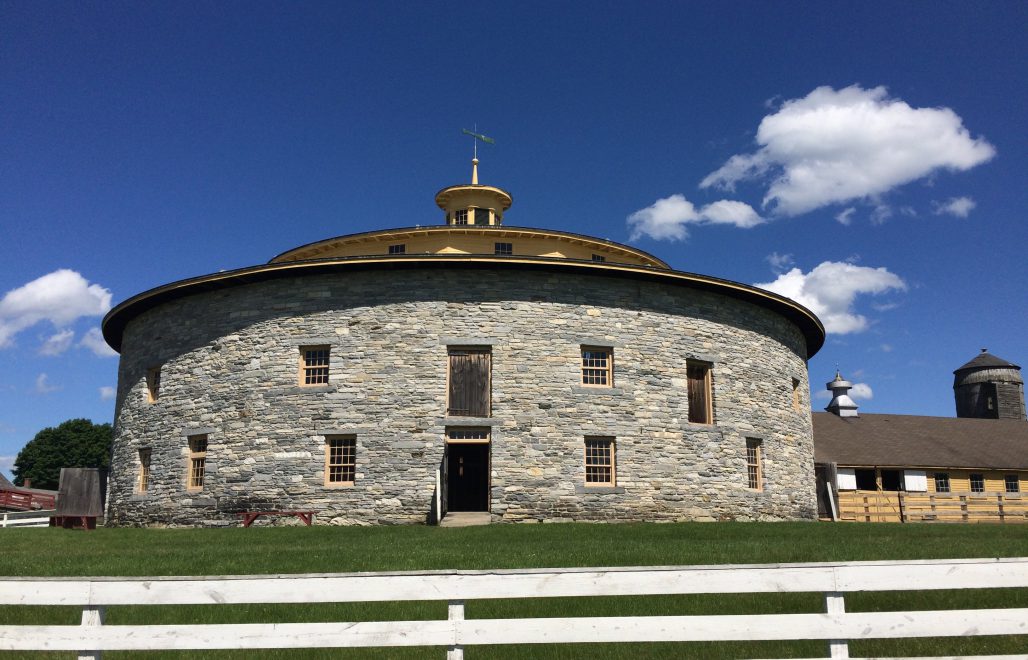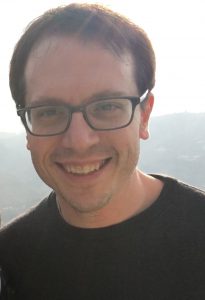Outside Study Enriches Faculty

For some Brooklyn Friends School faculty, summer research is a religious experience.
Middle School History teacher Amanda Goodwin, now in her second year at the school, received a National Endowment for the Humanities (NEH) grant to study Religious Revivals, Utopian Societies and the Shaker Experience in America this past June at Siena College in Albany, New York. “I studied Shakers and other utopian movements that came out of the second Great Awakening,” she said, referring to the Protestant religious revival that swept the US in the early 19th century.
“I have always been interested in American religious traditions. My first term paper in eighth grade was on the Mormons. And I was a Religion major in college.” Growing up in rural Bucks County, Pennsylvania, Amanda attended Newtown Friends and the George School. ‘I think the reason for my interest in religion is that I was a Quaker, and from this background where I had to explain myself,” she said. “I’m not Amish, I’m not this, I’m not that.”
Amanda currently teaches sixth grade History which covers largely the Middle Ages and early Islam, and seventh grade US History in which early religious settlements in the colonies are discussed. Although the Shakers didn’t come along until later, she cites the religion as an example of a monastic community not so different from some that sprang up in Europe the Middle Ages. “We discuss why people would remove themselves into celibate communities, and the fact that this happens throughout history.”
As a first-time attendee at an NEH summer institute, she was impressed. “I’m totally sold on the program,” she said. “What they offer teachers is an unbelievable experience. I felt invigorated and excited. And I was given so much material from other teachers, too, about how they had integrated Shakers into their classroom. For instance, it’s linked to the start of the progressive movement and women’s suffrage.”

Brandon Roth
Upper School teacher Brandon Roth received an NEH grant to attend the Religious World of New York summer institute in July at Union Theological Seminary in Manhattan. The three-week program was “essentially a course on teaching about religious diversity and lived religious experience in public and private school classrooms,” he explained. “We had sessions dedicated to each of seven religious traditions from scholars at the top of their fields, visits to places of worship all over the city, and panel discussions with local lay and religious leaders in each tradition.”
The course will be particularly relevant to Brandon’s 10th grade World Religions course. “I gained both academic background in the traditions I cover as well as ideas for approaching the content from a more experiential or lived religions approach,” he explained. “For example, I completed a curriculum project expanding my African Diaspora traditions unit to include a lesson on Haitian Vodou.” He also hopes to organize a panel discussion of local religious leaders for his students his spring, and to eventually add a mini-fieldwork requirement.
Additionally, he plans to apply some of what he’s learned to his 12th grade Philosophy course and the IB Theory of Knowledge (TOK) class that he teaches to 11th and 12th graders. One of the eight “ways of knowing” in the TOK course is Religious Knowledge Systems.
Quaker Witness and Outreach Director Tom Rothschild was invited to attend the Ancient Voices Forum, a three-day program held in September for Native Elders and allies. Sponsored by the American Indian Institute, the gathering was based on specific mandates to “‘get the Elder voice out’ and get dialogue started across cultures,” according to the organization’s website.
The focus was on stopping the ongoing destruction of our environment, the ongoing crises of war and genocide, and on the indigenous voice as a potentially saving factor with these problems. The conference was held at Six Nations Grand River Territory, a reserve in Ontario, Canada. Tom explained that the phrase Six Nations refers to the Six Nations of the Haudenosaunee — also known as the Iroquois — Confederacy. Two summers ago, Tom spent time in upstate New York learning the language of the Mohawk, a member nation of the Confederacy, and more about Haudenosaunee culture.
This November, Tom also participated in a three-day conference, the Spiritual Foundation of the Relationship between Quakers and Native Americans, held in Philadelphia at the University of Pennsylvania’s Penn Museum and at Bryn Mawr college. The conference was sponsored by the Philadelphia-based McNeil Center for Early American Studies, an interdisciplinary community of scholars who study the histories and cultures of North America in the Atlantic world before 1850.

Tracy Bucci
In July, Upper School French teacher Tracy Bucci did a different kind of cultural study by participating in a two-week workshop at the Alliance Francaise in Paris. The course, Summer Pedagogical Training, was for all teachers and professors of French who wanted to brush up on their teaching and learn new classroom methods.
“We were an international group of about 80 teachers,” said Tracy. “I was the only person from the US or even North America.” She currently teaches French 2, French 3, IB French 1 Standard Level & High Level, and IB French 2 Ab Initio.

